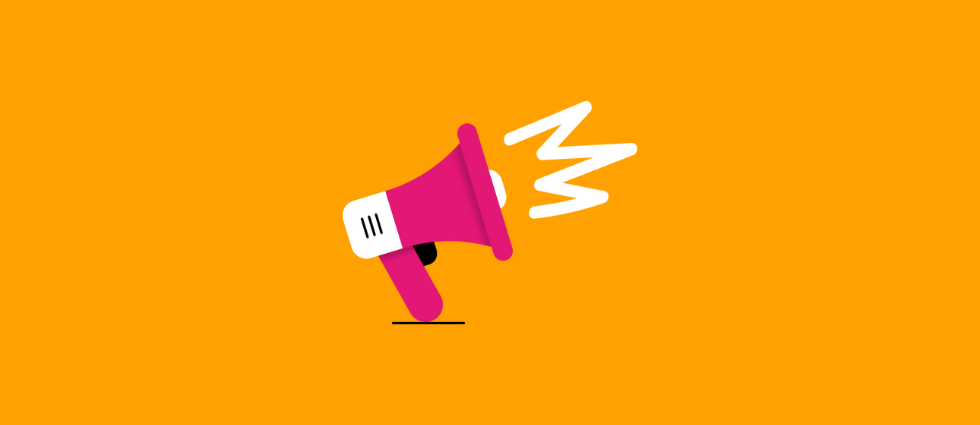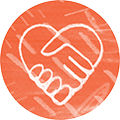
Mental healthcare in Scotland: Key concepts and terms
 Spotlight on learning from local partner Moray Wellbeing Hub
Spotlight on learning from local partner Moray Wellbeing Hub
The content displayed on this page was produced by Moray Wellbeing Hub and describes their reflections, experiences and learning over the years about lived experience leadership in driving change in healthcare / mental health services.
Visit Moray Wellbeing HubRead here about some of the approaches used in healthcare settings to ensure they provide mental health care and treatment in Scotland.
Supporting mental health is the responsibility of many organisations and services across health and social care; from primary care all the way to specialist mental health services, including Children and Adolescent Mental Health Services (CAMHS) and Perinatal and Infant Mental Health Services. New services are emerging as well as these more traditional ones. For example, Distress Brief Intervention (DBI) services where the aim is to ask once and get help fast.
These healthcare services use a number of approaches to ensure they provide care and treatment. Whilst consistency of use is variable, these are either aiming to support person-centred care or are key to understanding healthcare delivery from a more traditional medical treatment perspective, for example:
- Time, Space, Compassion
- Medical Model
- Social Model of Disability
- Mental Health Recovery and CHIME
- Peer support
- Trauma informed practice
- Intersectionality
Time, Space, Compassion
Time, Space and Compassion is an approach developed from suicide prevention and responding to crisis, and developing a mentally healthy culture. Beyond just crisis support, this approach can improve mental health in any aspect of health and social care and community activity, and is very simple to implement. It focuses on giving people support at the right Time when they need it; in an accessible and available Space; and are shown Compassion by those who are providing the support. It has been developed for use by people and services who regularly come into contact with, and support, people experiencing suicidal crisis.
Medical Model
This is a phrase used to describe a way of explaining and treating mental health challenges through diagnosing illness, and then using treatments based on this diagnosis. Whilst it has been the dominant way of designing services and supports in Scotland in the past, it is now understood to have limitations, and an acceptance of a recovery approach in mental health has grown. The medical model puts the professional as the key decision maker, whereas recovery has the individual in an equal or more powerful position to professional support.
Social Model of Disability
The social model was developed by disabled people and it is supported by organisations led by disabled people. It says disability is caused by barriers that arise because society is not designed to accommodate people who have ‘impairments’. It is these barriers that disable people who have impairments. They stop us from being included in society and participating on an equal basis. If these barriers are removed, a person may still have an impairment, but would not experience disability to the same degree.
Mental Health Recovery and CHIME
What recovery looks like is unique to the individual who is experiencing mental health challenges. It can be described as a journey or as living a full life, with or without symptoms of mental ill-health. Evidence has shown CHIME - Connection, Hope, Identity, Meaning and Empowerment - are vital components. The Scottish Recovery Network have a wealth of information on using and understanding CHIME, as well as ideas on supporting recovery in Scotland.

Peer support
Evidence shows that peers - people who have experienced similar challenges or are from the same community of interest or place - can be effective in supporting recovery. Peer support is best delivered through the HEAR ME values - Hope, Experience, Authenticity, Responsibility, Mutuality and Empowerment. Key resources can be found at Scottish Recovery Network. Moray Wellbeing Hub uses peer support as a core tool to delivering their range of supports to community, and use the HEAR ME values as a benchmark for how their team operate.
Trauma informed practice
Increasingly planning and delivery of services is being refocused to be trauma informed. This means being able to recognise when someone may be affected by trauma, significant negative experiences from the past and staff, then adjusting how they work to take this into account and responding in a way that supports recovery, does no harm and recognises and supports people's resilience. To achieve this NHS Scotland have a delivery plan with a strong focus in staff education.
Intersectionality
It’s important to consider diversity and inclusiveness of experience. Mental health stigma and discrimination don’t sit in isolation; instead, they intersect with other experiences relating to social identities and factors in human life such as race, sexuality, ability, citizenship, housing, wealth, etc. Systems of power (patriarchy, whiteness, racism, etc.) determine people’s access to privilege and experiences of disadvantage and create unique barriers when accessing (mental) healthcare, such as cultural biases, financial challenges and racism. It becomes important to note that these identities are not the problem; the barriers exist because of the way the system is designed, which does not accommodate the needs of certain communities.
This emphasises the need for tailored interventions that consider social identities in relation to power dynamics, understanding systems of power and actively addressing structural inequality, and allow healthcare professionals to critically examine their own biases which would provide a base for more personalised and effective care. By acknowledging intersectionality and taking intersectional approaches, we can address systemic inequalities, leading to more equitable mental health policies, practices and support systems.
Peer-support and how it impacts us, feedback from Moray 2024:
“A safe space for all & somewhere for people to be themselves.”
“I felt connected and it gave me purpose.”
"Glad we were here ‘cause it helped me get out of my head I was about to hit the F....it button and use."
“Didn't feel to good today. But I made myself come into town and ended up at peer support drop-in. What an amazing place just to talk and have a cup of tea.”
“I feel community spirit, understanding life in general. It’s an open space to talk freely without judgement, a happy place.”
